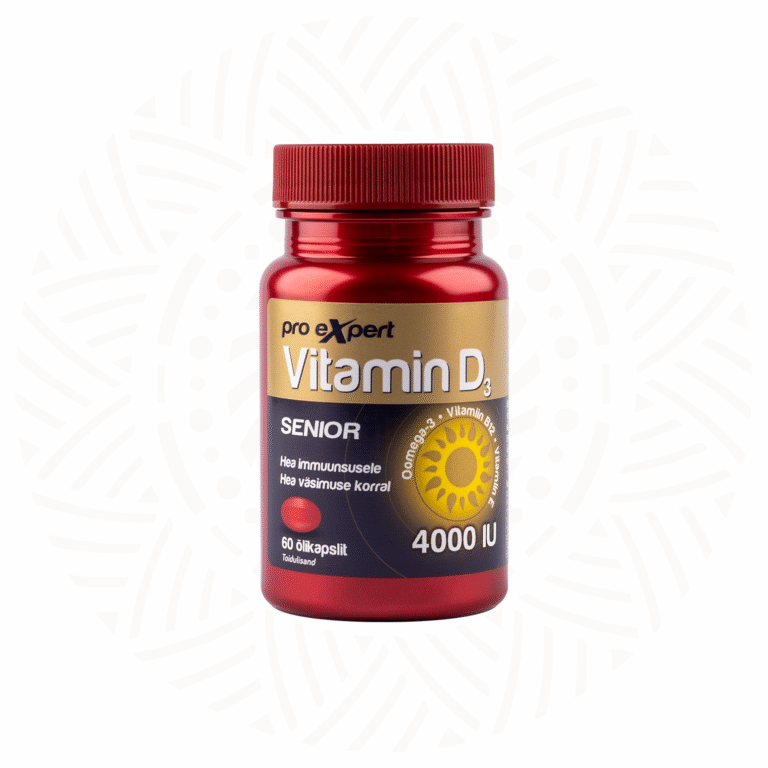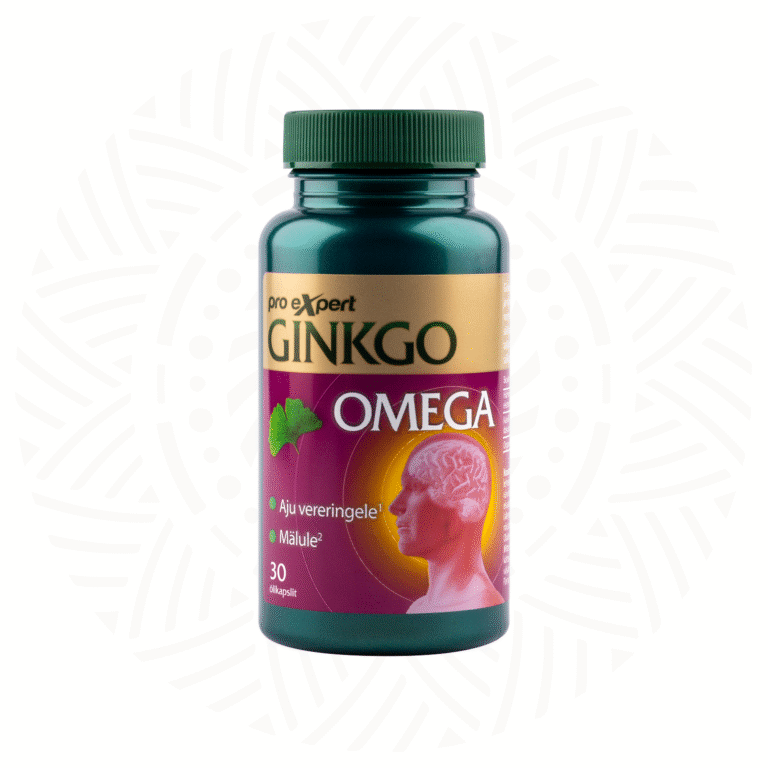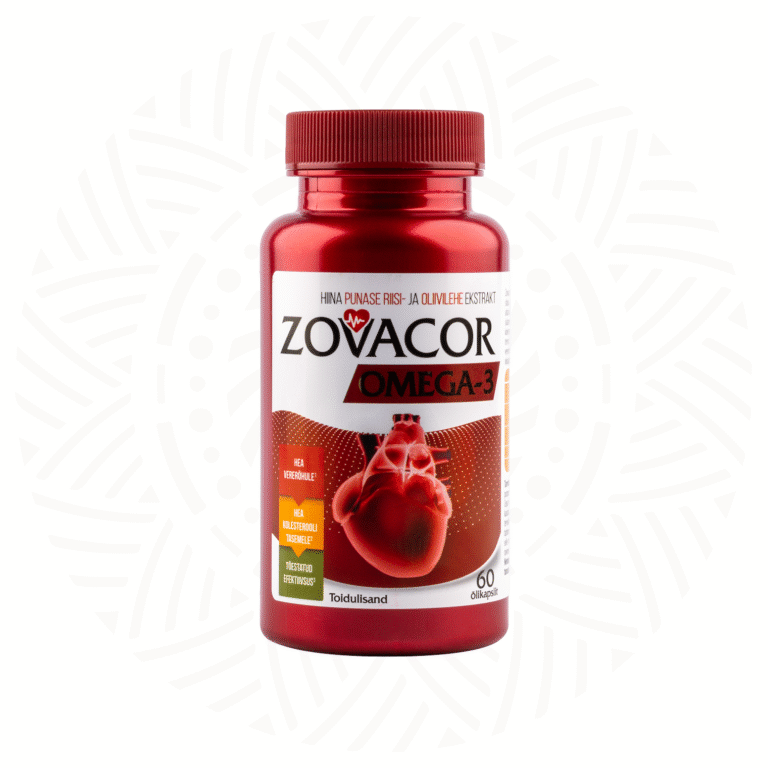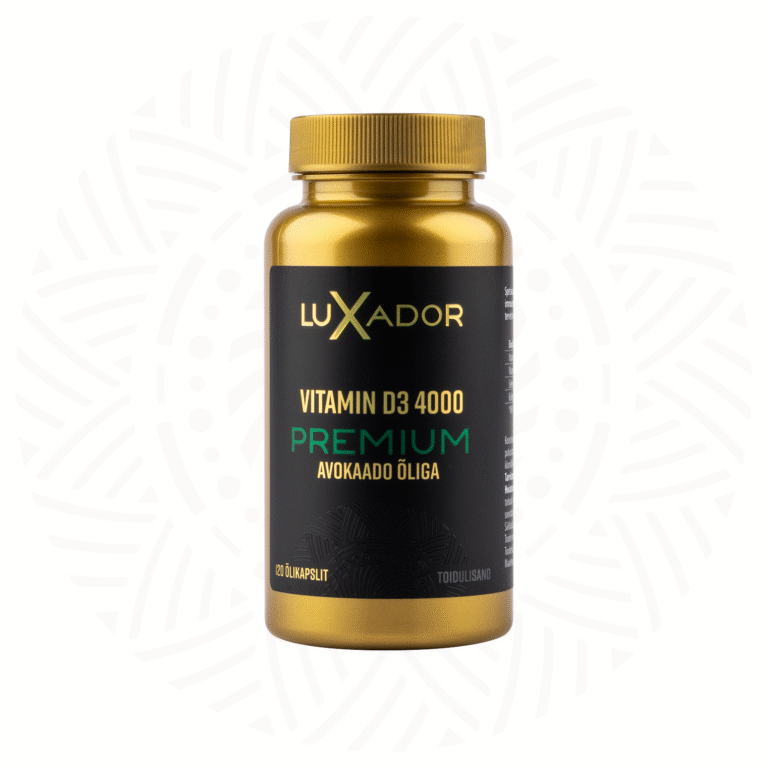Awareness of healthy nutrition is well known. Equally important is choosing the right supplement to meet the body’s needs, especially when it comes to omega-3 fatty acids. These essential fatty acids are crucial for cardiovascular health, the immune system, and brain function, and selecting the right type ensures maximum health benefits.
Read on to learn how to choose the right omega-3 fatty acids to best support your health and well-being.
What Are the Benefits of Omega-3?
Modern diets often lack sufficient omega-3 fatty acids. This deficiency can lead to inflammation, increased acidity in the body, and a weakened immune system. Weak immunity increases the risk of chronic diseases. Additionally, factors like coffee, alcohol, soft drinks, processed foods, stress, and medications contribute to acidity in the body.
The importance of omega-3 lies in the fact that they are essential fatty acids that the body does not produce on its own and must be obtained from food or supplements. For this reason, they are called “essential fatty acids.” Omega-3 fatty acids serve as fundamental building blocks for cells, helping to prevent and treat various diseases.
Particularly important are the omega-3 fatty acids EPA and DHA, which are vital for heart health, brain function, memory, vision, immunity, and overall development. They help maintain normal vision, support cognitive function, and reduce the risk of cardiovascular diseases. Additionally, they help lower blood pressure, regulate cholesterol levels, improve blood clotting, and keep blood vessel walls flexible.
What Are the Signs of Omega-3 Deficiency?
Often, we do not realize that fatigue, dry skin, or weakened memory could be signs of omega-3 fatty acid deficiency. These symptoms are similar to those of other conditions, making omega-3 deficiency difficult to detect.
Early signs indicating a lack of omega-3 fatty acids include:
- Dry skin – Omega-3 fatty acids help maintain skin hydration and reduce inflammation. Excessive skin dryness or itching can be a sign of omega-3 deficiency.
- Hair loss – Omega-3 fatty acids are essential for healthy hair growth. A deficiency can lead to dry, brittle hair and increased hair loss.
- Joint problems – Omega-3 fatty acids have anti-inflammatory properties, and their deficiency may cause joint stiffness, pain, and inflammation.
- Mood swings – Omega-3 fatty acids are linked to brain and mental health. A deficiency can contribute to mood swings, anxiety, depression, and increased stress.
- Memory and concentration difficulties – Omega-3 fatty acids are essential for brain health. Their deficiency may impact memory, concentration, and cognitive function.
- Cardiovascular issues – Omega-3 fish oil supports cardiovascular health. A deficiency may increase the risk of heart disease and impair blood vessel health.
- Dry and irritated eyes – Omega-3 fatty acids are crucial for eye health. A deficiency can cause dry eyes, irritation, and worsened vision.
- Slow wound healing – Omega-3 fatty acids play a key role in reducing inflammation and promoting tissue repair, making them essential for proper wound healing.
What Are the Sources of Omega-3?
Different omega-3 fatty acids come from various sources and have different effects on the body. Making informed choices about foods and supplements ensures that you receive the specific omega-3 fatty acids your body needs.
EPA (Eicosapentaenoic Acid)
- Primarily known for its anti-inflammatory properties, helping to reduce pain and swelling
- Has a blood-thinning effect and reduces the risk of blood clots
DHA (Docosahexaenoic Acid)
- Essential for brain, eye, and skin health, keeping hair strong and healthy
- Found in fish, especially fatty fish, as well as in seaweed
EPA and DHA are found in fatty fish such as salmon, herring, mackerel, sardines, tuna, and trout, as well as in shrimp and oysters.
ALA (Alpha-Linolenic Acid)
- An essential fatty acid that the body can convert into other necessary fatty acids
- Reduces the risk of stroke
- Found in plant oils such as flaxseed, soybean, chia, hemp, and canola oil
EPA – Your Heart’s Best Support!
Maintaining a healthy heart is crucial for everyone. In addition to a healthy lifestyle, it is important to regularly consume omega-3 fish oil, particularly the beneficial EPA fatty acids, to support heart health.
Why Is EPA So Important for the Heart?
- Strong anti-inflammatory properties – EPA helps reduce inflammation in arteries, a major risk factor for heart disease.
- Regulates blood lipid levels – EPA helps lower triglyceride and LDL (“bad” cholesterol) levels in the blood, reducing the risk of heart attack and stroke.
- Supports blood pressure regulation – EPA helps lower blood pressure, which is a key factor in reducing the risk of heart disease.
DHA – Your Brain and Nervous System’s Best Friend!
For optimal brain and nervous system health, DHA fatty acid is especially important, as it makes up a significant part of brain tissue and nerve cell membranes, supporting the normal functioning of the nervous system.
Why Is DHA So Important for Your Brain?
- Helps maintain brain structure and function – DHA is a key component of brain cell membranes. It supports memory, concentration, and learning ability.
- Supports nervous system health – DHA aids nerve impulse transmission and improves nerve cell function.
EPA – The Foundation of Your Joint Mobility!
Joint health is essential at any age, as it significantly impacts daily movement and overall quality of life. Healthy joints enable an active lifestyle and help prevent age-related mobility limitations and discomfort.
Why Is EPA So Important for Joints?
- Strong anti-inflammatory properties – EPA helps reduce joint inflammation, which is a key symptom of arthritis and other joint-related conditions.
- Pain and stiffness relief – EPA helps alleviate pain and stiffness, which are common daily issues for people with joint pain.
- Improves joint function – EPA supports joint mobility, flexibility, and cartilage regeneration.
DHA – The Key to Sharp Vision!
Eye health is important at every stage of life, especially in today’s digital era, where prolonged screen time causes eye fatigue and dryness. These common issues significantly impact our quality of life and work efficiency.
Why Is DHA So Important for Eye Health?
- Essential for retinal structure – DHA makes up a significant portion of the retina’s lipids, helping to ensure sharp vision and good contrast perception.
- Prevents and alleviates dry eye syndrome – DHA helps maintain eye moisture and protects the cornea from drying out.
- Anti-inflammatory properties – DHA helps reduce eye inflammation and protects against age-related degenerative diseases.
Food or Omega-3 Capsules?
It is often said that food can be both the most powerful and safest medicine or the slowest poison for your health. It is important to understand that omega-3 fatty acids, as the foundation of health, reach our bodies only through food or supplements. The best way to maintain good health is to take omega-3 capsules daily, containing 250 mg of EPA and DHA fatty acids.
Although ideally, we should obtain these essential fatty acids from a diverse daily diet, the reality is harsh—about 85% of people suffer from omega-3 fatty acid deficiency. This alarming statistic highlights the crucial role omega-3 fatty acids play in our bodies. It is essential to remember that making conscious choices about food and supplements plays a key role in our overall health and well-being.
Choose omega-3 fatty acids wisely and stay healthy!








